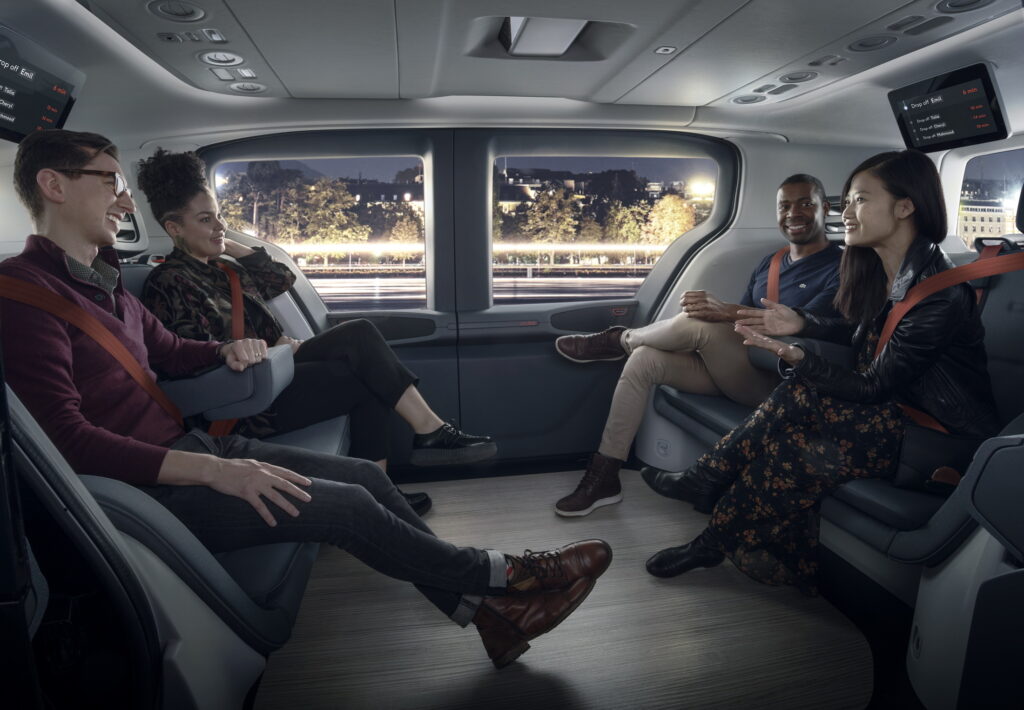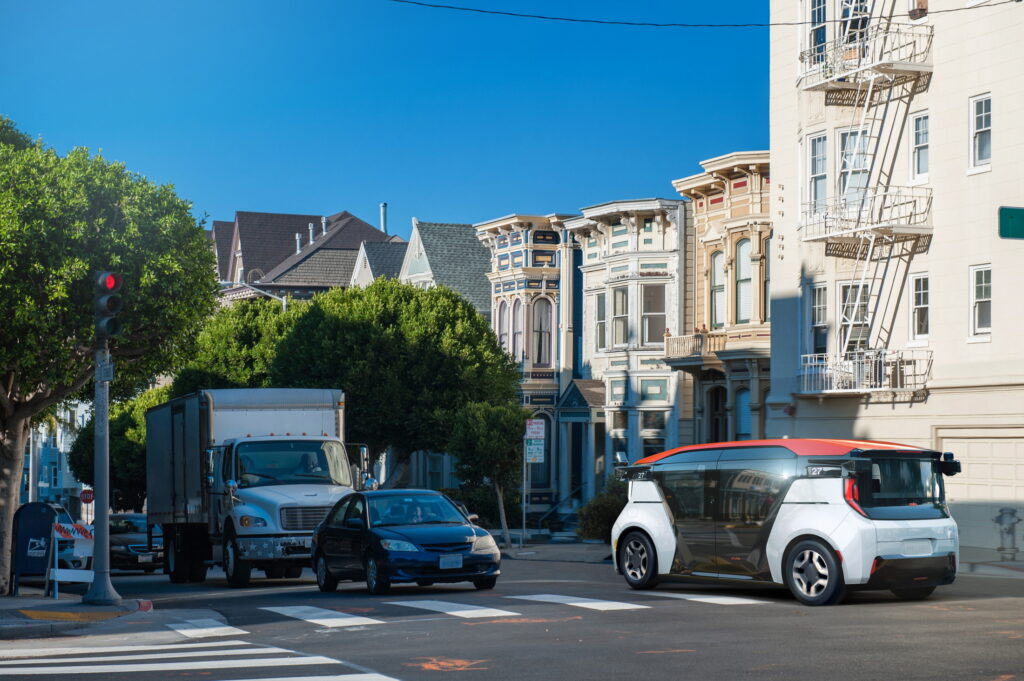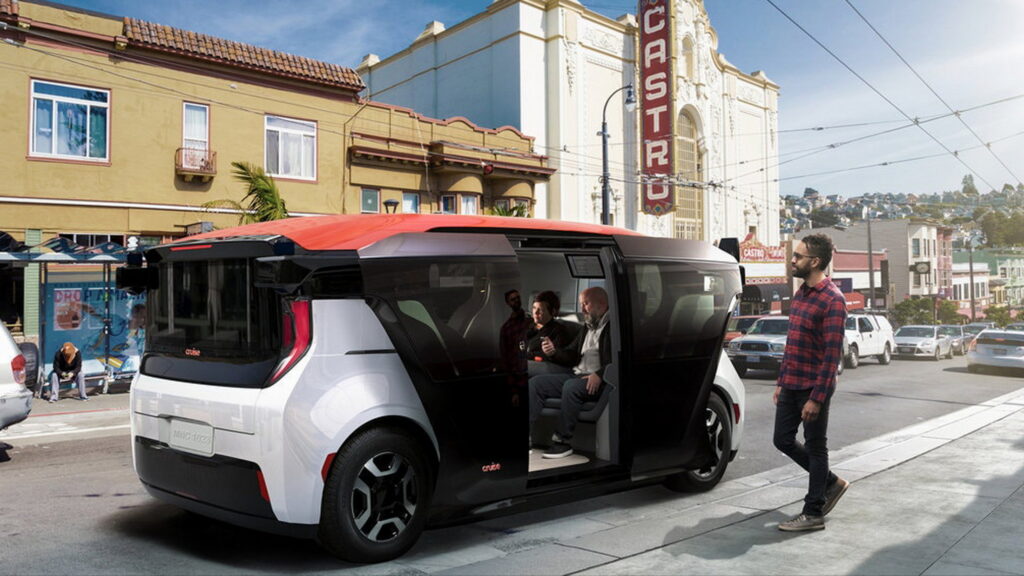The final regulatory approval required to start production of the fully autonomous, steering wheel-less Cruise Origin is just around the corner, CEO Kyle Vogt said recently at a conference. That will allow the company to put its first autonomous-only vehicles on the road in the near future.
Cruise has been advertising the Origin for some time. The Origin looks like a toaster on wheels, and contains six seats for passengers that face each other, plus no human-oriented vehicle controls whatsoever. Cruise uses a repurposed test vehicle from its parent company, GM, that could initially allow a human operator to be onboard (though they are no longer required in the vehicles).
Because the Origin doesn’t have a steering wheel or pedals, the two controls it won’t surprise you to learn the National Highway Traffic Safety Administration (NHTSA) requires of all vehicles, Cruise must ask for an exemption from the regulator.
Read: Autonomous Car Companies Like Waymo And Cruise Involved In Hundreds Of Crashes Since 2021

Although a bill is in the Senate that would allow for up to 25,000 of these exemptions to be handed out for autonomous testing, it has stalled. So companies producing AVs must currently compete for just 2,500 exemptions per year, which Vogt believes his company will get.
“We are — from what we’ve heard from NHTSA — just days away from the last regulatory approval, which would let us start production and almost immediately start putting these vehicles on the road,” Vogt said, per the Detroit Free Press.
NHTSA is less certain, telling the outlet that “no agency decision to grant or deny the petition submitted by GM has been reached, nor has a deadline been set for such a decision.”
However, if Vogt is correct, production of the Origin will begin quickly at GM’s Factory Zero, in Hamtramck, Michigan. They would likely be deployed in San Francisco, where Cruise has been granted state approval to operate autonomous vehicles throughout the day and to charge customers for their use as robotaxis.
While the technology is impressive, it has also run afoul of many locals, in particular first responders. Firefighters have complained that Cruise’s autonomous vehicles seem not to understand emergency scenes, and one of its AVs recently collided with a fire truck, injuring one person, and prompting the state to mandate that the company run at half capacity.
Vogt says he is unconcerned by the complaints against autonomous vehicles, arguing that it is natural for emerging technologies to face more scrutiny than existing ones.
“Having the largest fleet, driving more miles than anyone else, it’s simple logic that if there are rare events that can happen on the road, we’re probably going to see them first,” Vogt said. “If you’re a regulator, the first time there’s a novel event or a certain type of collision, it’s healthy public discourse and regulatory scrutiny for them to want to investigate that event and understand it.”





